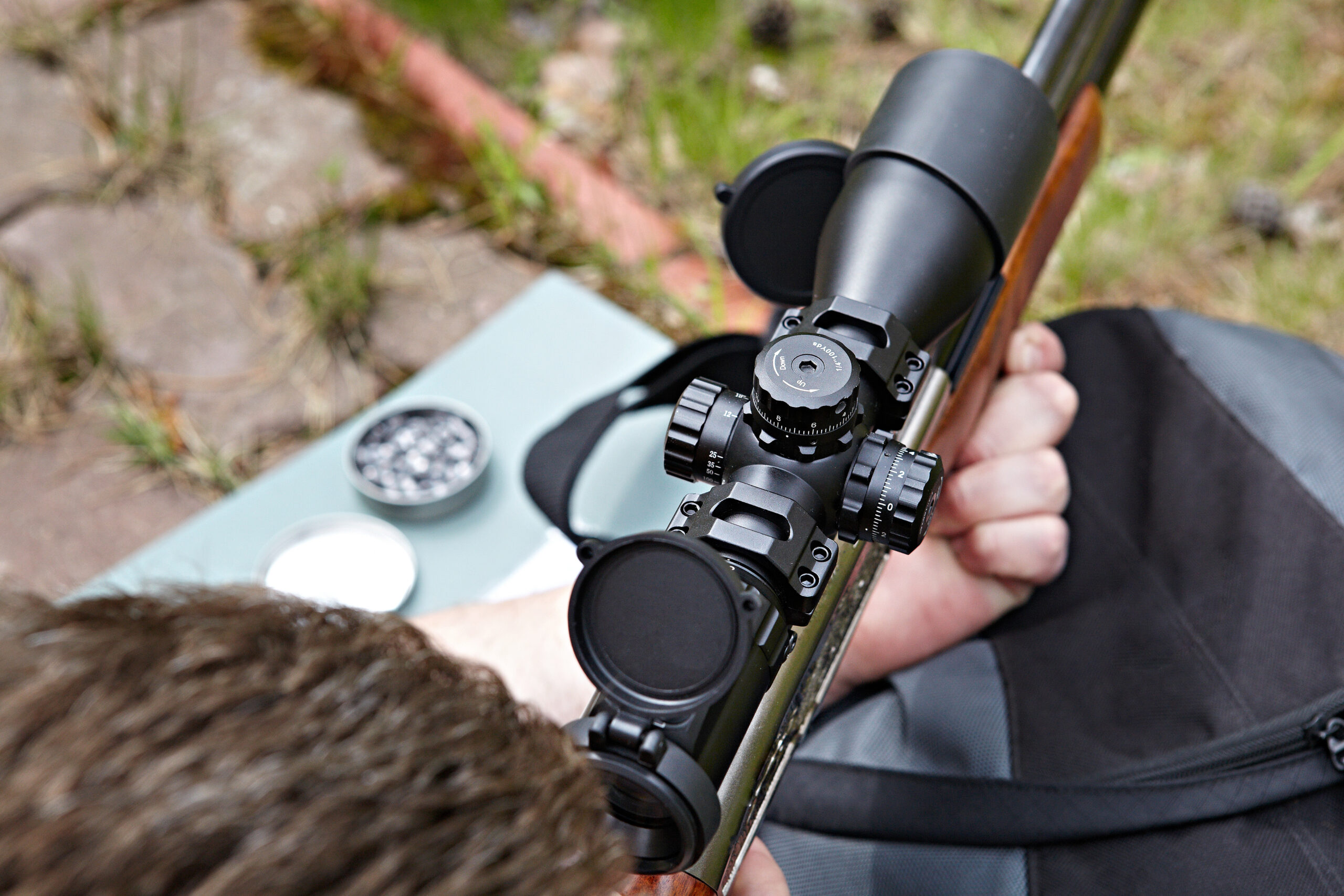As the chill of February settles in, hunters across the country are gearing up for the next hunting season. While the weather might seem like an off-season for many, February offers a prime opportunity to prepare for upcoming hunts, whether you’re a seasoned hunter or a newcomer looking to get ready for the spring or fall seasons.
In this article, we’ll cover all the essential steps you can take in February to ensure you’re fully prepared for your next hunt. From scouting and gear maintenance to fine-tuning your skills, let’s dive into the key preparations that will give you a head start when the hunting season rolls around.
1. Gear Check and Maintenance: Ensure Your Equipment Is in Top Shape
Hunting gear is the backbone of any successful hunting trip, and February is the perfect time to inspect and maintain all your equipment. Whether you’re preparing for a spring turkey hunt or a fall deer hunt, now is the time to ensure that everything is ready for action.
- Rifles and Firearms: Clean and inspect your firearms thoroughly. Check for any signs of wear and tear, especially on critical components like the barrel, trigger, and stock. Make sure your scope is properly aligned and that your ammunition is fresh. Cold temperatures can sometimes affect the performance of certain ammunition, so check expiration dates or potential moisture damage.
- Bow and Arrows: If you’re an archery hunter, now is the time to inspect your bowstring and cables for frays or damage. String wax can help preserve the bowstring, ensuring a smoother draw during the hunt. Check your arrows for bent shafts, cracked fletching, or loose nocks. Replacing worn-out broadheads is also essential before your next hunt.
- Clothing and Footwear: Cold-weather hunting means relying heavily on layering, so make sure your cold-weather gear is in good condition. Inspect your jackets, base layers, gloves, and boots. Be sure that your hunting boots are waterproof and free from leaks, and that they still offer the comfort and support you need for long treks.
2. Scouting and Location Research: Start Mapping Out Your Hunt
Even though it’s still winter, scouting for the next hunting season doesn’t have to be put off. Winter and early spring can provide unique opportunities for locating game, as animals are often easier to spot in the sparse foliage and snow-covered landscapes. Additionally, you’ll have fewer distractions and fewer people in the field.
- Deer and Game Tracks: Look for fresh tracks in snow or muddy areas. Tracking deer and other game animals now can give you insight into their habits, migration patterns, and feeding areas. Even if you’re not able to harvest anything at this stage, observing where deer are moving can give you a big advantage when hunting season arrives.
- Tree Stands and Blinds: Now is the time to check your stands, blinds, and hunting sites. Ensure that tree stands are stable, secure, and properly camouflaged. If you’re hunting from a blind, check for any damage from the winter weather and make necessary repairs. This gives you the chance to make adjustments and ensure a successful hunting experience later in the season.
- Food Plots: Consider prepping food plots for spring planting if you have the space and time. Planting early-season crops, such as clover, alfalfa, or oats, can attract deer and other wildlife during the later months. Early prep also helps ensure your plots are ready when the warmer weather hits.
- Trail Cameras: If you haven’t done so already, February is a good time to check and maintain trail cameras. Make sure they are still working, and that the batteries are fresh. Capturing wildlife activity during the off-season can give you insights into where animals are frequenting, which can be useful come hunting season.
3. Practice and Skill Development: Fine-Tune Your Hunting Techniques
Whether you hunt with a rifle, bow, or other specialized weapons, February is the perfect time to practice and hone your skills. With the hunt months ahead, there’s plenty of time to refine your technique, ensuring that you’re as prepared as possible when the season opens.
- Shooting Practice: Spend time at the range practicing your shooting. For rifle hunters, check your sighting and practice from various distances. If you’re bow hunting, now is a great time to work on your accuracy and consistency with your bow. Cold weather can affect your gear and the feel of your equipment, so practicing in colder conditions will help you adapt.
- Tracking and Stalking: In addition to physical shooting practice, work on your ability to track and stalk your prey. Whether you’re stalking wild turkeys or big game like deer, refining your stealthy movement and awareness in the field is essential. Try to simulate hunting scenarios by walking in areas with snow or mud, paying attention to how quietly you can move while still remaining alert to your surroundings.
- Calling and Luring Techniques: If you’re hunting animals that rely heavily on calls—like turkeys, elk, or coyotes—now is the time to practice your calls. Whether it’s learning to master a turkey diaphragm call or perfecting your elk bugle, repetition is key. Record yourself and compare it with authentic calls to gauge your accuracy.
4. Research Local Laws and Regulations: Stay Updated on Hunting Seasons and Rules
It’s important to stay informed about any changes to hunting regulations that may occur before the next season. States and provinces regularly update hunting laws, and you’ll want to be up-to-date on these changes, including season dates, weapon regulations, bag limits, and specific hunting zones.
- Licenses and Permits: Ensure that your hunting license is up to date and check the application dates for any special permits (e.g., for limited-entry hunts or specific species). Some hunting zones require additional permits, and early application can sometimes improve your chances of getting one.
- Game Laws and Restrictions: Research any changes in game laws in your area. This can include new regulations for certain species, changes to hunting hours, or changes in bag limits. Staying informed helps avoid unnecessary violations and ensures that you’re hunting legally and ethically.
- Public and Private Land Access: Some hunting grounds require specific permissions or have restricted access during certain times of the year. February is a good time to contact landowners or check online portals for updates on public hunting lands, ensuring that you are legally allowed to hunt in specific areas.
5. Health and Fitness: Prepare Your Body for the Demands of Hunting
Hunting often involves long treks, difficult terrain, and strenuous physical activity. Preparing your body for the physical demands of the hunt is crucial, and February is an excellent time to start a fitness regimen that will benefit you come hunting season.
- Endurance and Stamina: Hunting often requires walking long distances over rough terrain. To build endurance, consider activities like hiking, cycling, or even using a treadmill with an incline. This helps prepare your body for extended periods of walking and climbing, which are common during hunts.
- Strength Training: Strengthening your core and legs is vital for carrying gear, climbing stands, and maintaining steady movements in the field. Incorporate bodyweight exercises like squats, lunges, and planks into your routine to build strength and improve overall fitness.
- Flexibility and Mobility: Hunting can involve sudden movements, such as drawing your bow, adjusting your position, or maneuvering around obstacles. Stretching and mobility exercises are essential to prevent injury and increase flexibility. Consider yoga or dynamic stretching routines to enhance your range of motion.
Conclusion: February is the Foundation for Your Hunting Season
Although hunting may seem like a distant activity during February’s coldest days, there’s no better time to prepare for the upcoming seasons. By maintaining your gear, scouting, honing your skills, staying updated on regulations, and improving your fitness, you’ll be ready for the challenges of the hunting season ahead. This groundwork will not only help you become a more efficient and effective hunter but will ensure that you’re fully prepared when the season opens.
As the days get longer and the temperatures warm, you’ll have laid the foundation for a successful and enjoyable hunting season. So, get out there and start preparing—your best hunt awaits!


